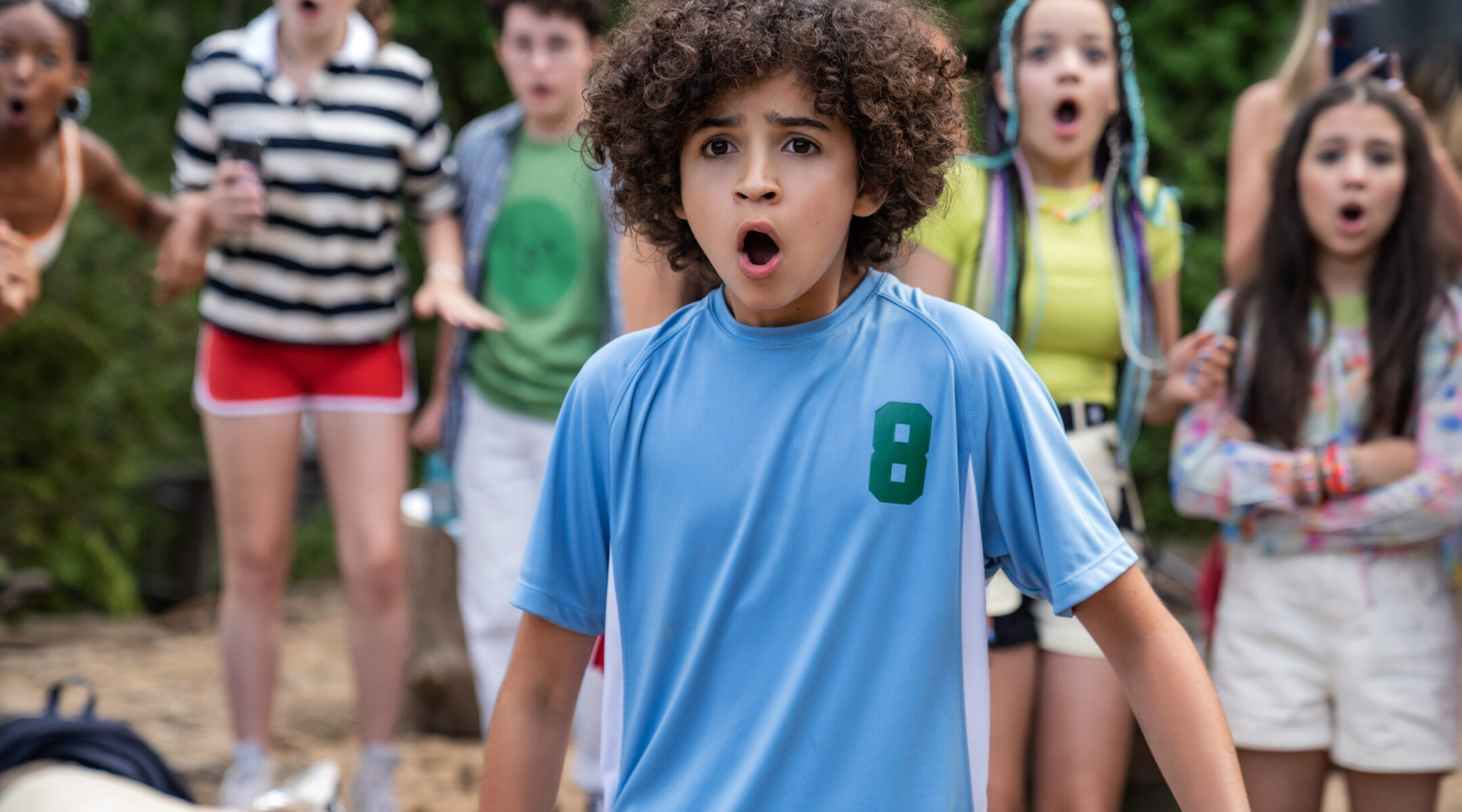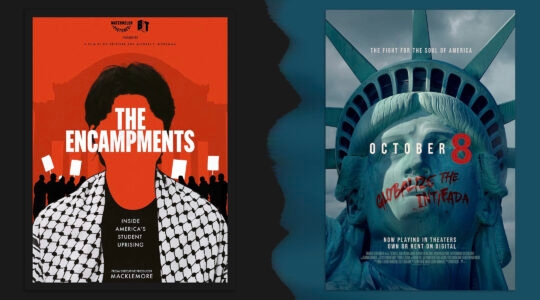(The Jewish Chronicle via JTA) — There are so many things to love about the new Netflix film “You Are So Not Invited to My Bat Mitzvah” that it seems almost churlish to single out the one big thing that I think it got wrong. So first — spoilers ahoy — let me say what I think it got right.
Yes to showing Jewish tweens living their lives, doing their thing and grappling with the social and spiritual demands of a year when everyone around them is doing that too. Yes to every member of the Sandler family — dad Adam, daughters Sadie and Sunny and wife Jackie — giving great performances, and that goes for Idina Menzel as well. Yes to the way that the kids struggle for individuality in a world where every party has the same DJ and much the same set of guests. A qualified yes to the kooky, deeply irritating, but ultimately wise Rabbi Rebecca, played by Sarah Sherman.
There’s a great cast of older Jewish character actors and young stars in the making. And it’s nice to see an emphasis on the synagogue and “mitzvah project” side of things, not just the party.
Well done too for showing tweens as flawed humans, capable of great cruelty and stupidity but who are also willing to grow and learn, and use the big rite of passage as a vehicle for that growth. There are plot holes, to be sure (the tensions from Lydia’s bat mitzvah would have rumbled on for generations, not resolved in a tidy moment of catharsis), but you roll with it. I had tears in my eyes at the (implausible) ending.
I also liked the multicultural nature of the Jewish world on show. There are Latino Jews. There are Korean Jews. We might as well be in Israel: Everyone in the movie appears to be Jewish.
Everyone except Mateo.
Mateo is one of only two young boy characters in the film given anything like a personality (the others have catchphrases but nothing resembling two dimensions). He’s a friend of Andy Goldfarb, the soccer player on a mission to kiss the girls and make them cry. Mateo is short and has a foreign accent, and none of the Jewish kids except Andy pay him any attention.
But we gradually come to realize that Mateo — uniquely — is really nice and good, the moral center of the film. And even though he’s a churchgoing Christian, he turns up at Hebrew school, to teach the younger children their Shabbat prayers. This was not true of the Mateo-inspiration character in the book by Fiona Rosenbloom on which the movie is based, and it confused me, because what kind of synagogue lets a Christian kid volunteer there? Have they never heard of evangelicals? Mateo’s answer: “I go to chuch every Sunday. Might as well fill in the other six days with some other, you know, holiness, too.”
Because Mateo’s a Christian, he’s not having a bar mitzvah. And so he doesn’t have the same journey to go on as the other kids. But he doesn’t need to: From the start, he seems to be infinitely more virtuous than all of them. With Mateo the sole representative of Christianity in the film, one could read into it the message that Christians are somehow better than Jews. That they embrace mitzvot naturally, without a big song and dance, led by DJ Shmuley. That Christianity is somehow a more evolved, better religion.
The film’s closing scene makes clear what hints along the way have suggested — that Stacy will give up on brutish Andy and realize just how charming Mateo is. The implication is that Stacy — seen at the end dancing with Mateo, even though he’s a foot shorter than her — will one day become more like Mateo.
Now I have nothing against Christians — some of my best friends, et cetera, et cetera — and I’m all for interfaith friendships. And I’m not fretting about intermarriage here, in part because that’s not where seventh-grade flings typically end up.
But did anyone, when they were writing the screenplay, think through the implications of creating a pint-sized Christian saint and plonking him into a Jewish narrative? I can’t look at the story arc and the slow dancing without feeling the weight of thousands of years of Jewish persecution stemming from the idea that Christians have it figured out and Jews need to catch up to their enlightenment. Even the most benign explanation, that the filmmakers wanted to include someone from the dominant culture to make the movie relatable to the widest audience, is a reminder that we cannot escape Christian hegemony even when we tell our own stories.
It didn’t have to be this way. If you want to show a multifaith universe, where are the Muslim, Hindu and Buddhist kids? But better yet, Mateo could have been Jewish like the rest of the cast. With that mop of curly hair, short stature and love of Hebrew school, he easily could have been the nicest Jewish boy in town.
A version of this piece originally appeared in The Jewish Chronicle, a London-based newspaper. It is reprinted here with permission.
JTA has documented Jewish history in real-time for over a century. Keep our journalism strong by joining us in supporting independent, award-winning reporting.







